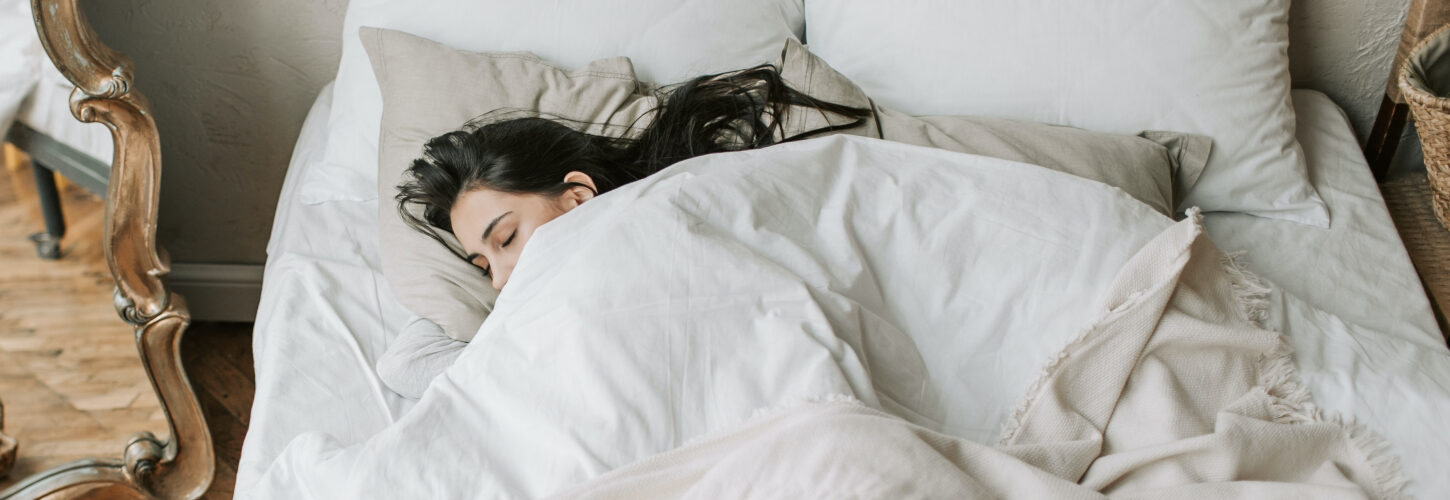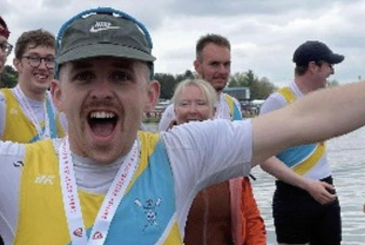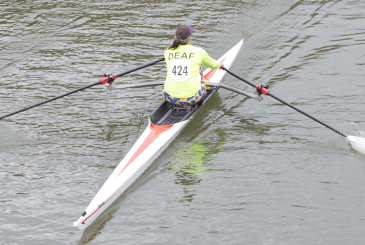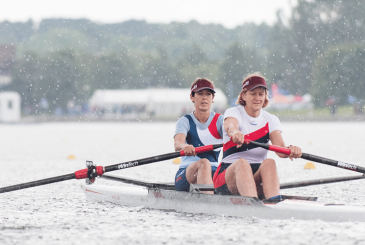A good night’s kip has a definite impact on wellbeing, but can it make you a better rower? Luke Gupta, sleep scientist at the UK Sports Institute, talks to Caroline Roberts

Caroline Roberts: How much can sleep, or lack of it, affect athletic performance?
Luke Gupta: There’s not a huge amount of evidence to suggest it affects physical attributes, such as muscle power, speed and endurance, but we do know that sleep has a profound effect on mental abilities, such as concentration and decision making. So, it can affect your ability to make decisions in the boat, like when you kick on, for example.
The other aspect is emotional function. We know that when you don’t sleep well, your ability to regulate emotion becomes impaired and you become a lot more reactive to things that might not have annoyed you before, and you can feel more anxious. It can also affect your confidence. People who don’t sleep well start to lose their confidence in their ability to sleep, which also can translate into a lack of confidence in their ability to do other things. It can have quite a holistic impact.
CR: How much sleep do you need? And how do you know if you’re getting enough?
LG: It’s individual, but it’s largely determined by age. We know that teenagers require at least eight hours of sleep and most adults require only seven hours. A few people can function well on less. Contrary to what many people think, the amount you need doesn’t really change as you get older.
In the same way that feeling hungry is a good indication that you need to eat, feeling sleepy in the day tells you that you’re not getting enough sleep. You can also look at your sleep patterns at weekends. Most people sleep longer at the weekend because the schedules that were constraining them in the week are no longer present.
If you find you’re sleeping in really late, that might be an indication that you’re playing catch-up at weekends and your weekday sleep isn’t doing enough for you. The beauty of sleep is that it’s so easy to experiment with. You can try sleeping a bit longer and the next day you’ll have immediate feedback of whether it’s benefited you or not.
CR: What about different types of sleep? I’ve heard you need plenty of deep sleep to aid recovery.
LG: We go through sleep cycles lasting 80 to 110 minutes throughout the night. We know you get more deep sleep in the early part of the night and there are suggestions that things like tissue repair take place during this stage, but we don’t really know what the exact functions of each stage of sleep are.
It’s not something you can control. If you stay up all night one night, then the next night you’ll get loads of deep sleep. And when you exercise more, you get more deep sleep, and that’s because your body is responding to the stress.
“I often recommend that athletes to go to bed later the night before competition as opposed to earlier”
CR: Any sleep tips for before a big race?
LG: In the elite world, we know that athletes’ sleep is most disturbed the night before competition. There’s all sorts of stuff going through your mind and that’s normal. Your sleep might also be disrupted during a regatta because you’re sleeping in a tent, but it’s not just about that one night.
We have this construct called sleep banking. The idea is that, prior to a challenging event, you make sure you have the opportunity to get more sleep as we know that when sleep gets disrupted after a period of good sleep, it doesn’t affect you so much.
And because we know that sleepiness drives your ability to fall asleep, I often recommend that athletes to go to bed later the night before competition as opposed to earlier, which a lot of people tend to do. If you go to bed later, you’re more likely to fall asleep. Your sleep might be slightly shorter, but you’re increasing the likelihood of getting more restorative, quality sleep.
Also, sleep doesn’t have to happen all at once. If you know you’re going to have terrible sleep throughout the event, there might be opportunities to go back to your tent to have a 20-minute nap.
“We know that training to be a rower can have a profound impact on sleep, as a lot of rowers train early in the morning”
CR: What’s interesting in sleep research at the moment?
LG: Whether you’re a night owl or a morning person is something that’s largely inherent, although after the teenage years, when you tend to be more of a night owl, there’s a continuum and most people sit somewhere in the middle.
We know that training to be a rower can have a profound impact on sleep, as a lot of rowers train early in the morning to accommodate work and school. If you aren’t particularly fond of getting up early, or if you’re a younger athlete, then that’s a real mismatch of biology and the demands of training.
It does pose the question of whether rowing pre-selects for a certain type of sleeper. When you look at other sports that typically adopt early-morning start times, from the research we’ve seen it’s predominantly the morning types. That begs the question of whether they’ve been trained to become morning people or just gravitated to that type of sport because it suits them better.
In lockdown, people might not be adhering to training schedules as much as they used to and what we’ve learnt is that, if you leave them to it, athletes tend to train at different times. That’s interesting, but we don’t know what the impact is on performance.
I’ve got a hunch there is something in there, I’m not quite sure what it is. The research is starting to move towards whether you can individualise training schedules to take into account someone’s natural sleep patterns. If so, do you get better performance? Obviously, it’s a bit tricky from a practical point of view, but I like the idea.










